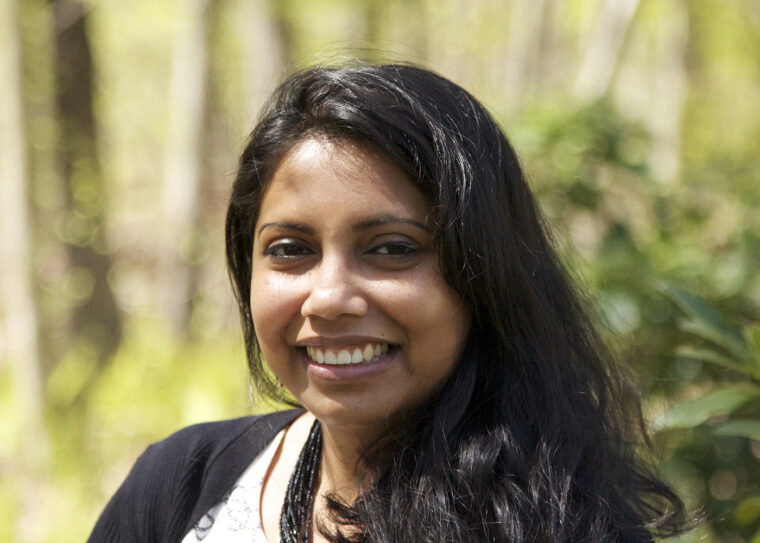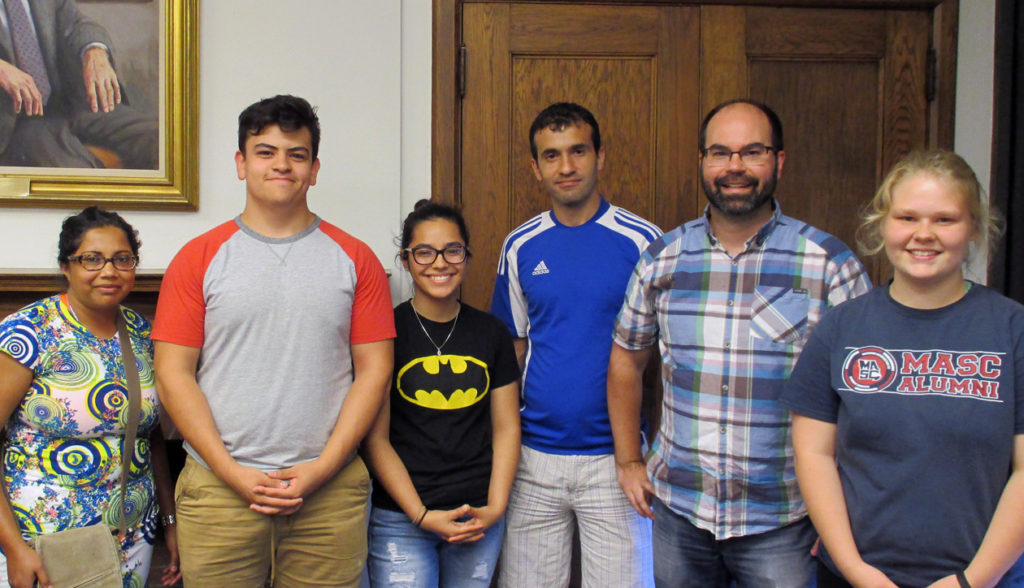
For microbiologist Arpita Bose, associate professor of biology in Arts & Sciences, science is a necessarily interdisciplinary and collaborative endeavor. Bose describes herself as a "glass half full," "solutions-oriented" person. She has a keen instinct for finding creative approaches to even the thorniest questions.
Bose's lab focuses on microbial metabolisms, taking an interdisciplinary approach to address issues related to energy and sustainability. Bose has published research on how microbes can "eat" electricity, using a novel process to harvest electrons straight from an electrode source. By locking away carbon dioxide, these electricity-loving microbes may potentially play a role in combating climate change.

Bose was recently named an associate editor of the journal Applied and Environmental Microbiology, where she hopes to improve transparency, diversity, inclusivity and fairness in peer-reviewed scientific publishing, especially for early-career scientists. She also was chosen to be a faculty marshal in this year's graduate school Commencement ceremony in recognition of her dedication to mentoring students and her work in finding pipelines to attract women and students of color into STEM fields.
In a Q&A, Bose reflects on her journey from student to associate professor and the lessons she has learned along the way. She also looks to the future of science as a profession and the small changes happening now that she thinks will add up to a big difference on a global scale.
Collaboration has been a hallmark of your work at WashU. What drives your interest in collaborative research?
Collaboration was a natural choice for me, even before I came to WashU. When I was in grad school, there was this drive to have a singular focus, to do the work I would publish by myself or just with my mentor. But around the time I was finishing graduate school, my mentor gave me some good advice. He said, in the next phase of your career, now that you've established yourself as someone who can do all these different things, it's time to collaborate openly and do extraordinary science that you alone may not have the bandwidth or even the skill set to do. When I started my postdoc, the collaboration happened naturally because I was coming into that experience with an open mind, ready to approach projects in a different way. Conversations led to projects, and projects led to grants. I'm a very social person, so that model was a perfect fit for me.
At WashU, I kept that collaborative spirit. I knew that to do climate science - which is what I'm especially interested in - and do it well, I'd need collaborators from across disciplines.
Read the full Q&A on the Ampersand website.






